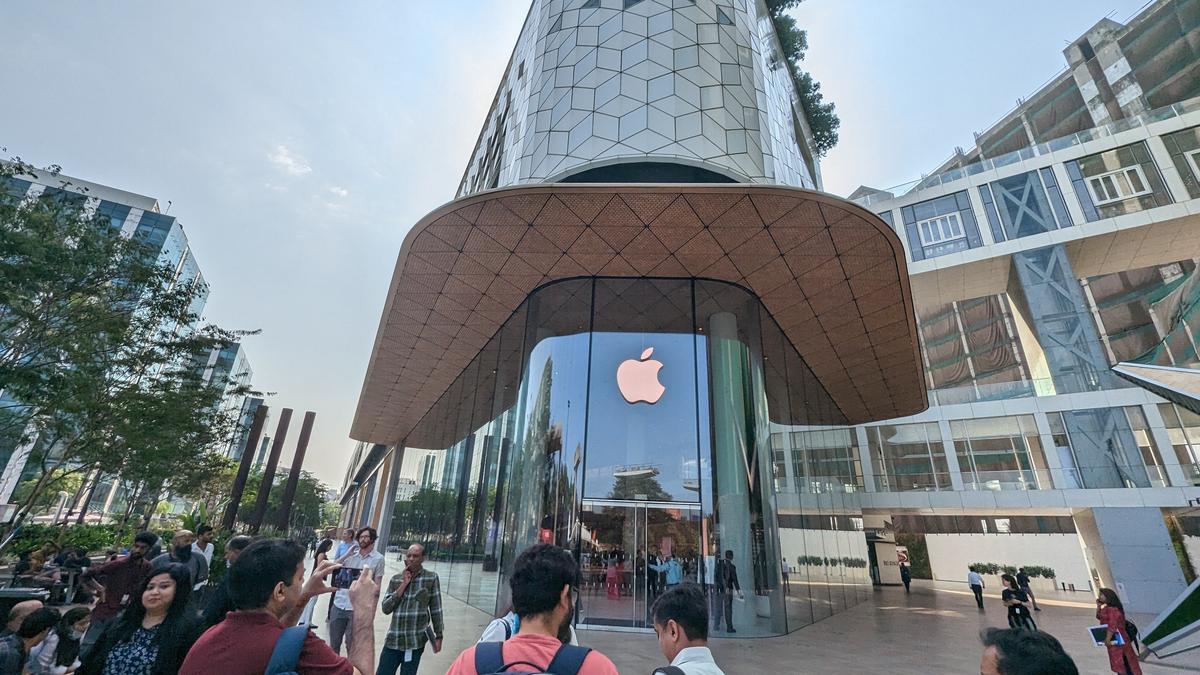Apple’s expansion into India marks a significant milestone in its global manufacturing and retail strategy. The company’s announcement of full iPhone 16 lineup production, including the Pro and Pro Max models, within India, coupled with plans to open four new retail stores, underscores its commitment to the burgeoning Indian market. This strategic move not only allows Apple to tap into a massive consumer base but also diversifies its manufacturing footprint, mitigating risks associated with reliance on a single production hub. The implications for both Apple’s global operations and the Indian economy are far-reaching, impacting jobs, technology transfer, and the overall technological landscape of the country. This expansion signifies a major shift in Apple’s approach to international markets and positions India as a key player in its future growth strategy. Further analysis will reveal the intricate details and potential long-term impacts of this significant development.
Apple’s iPhone 16 Production Shift to India
Apple’s decision to manufacture the entire iPhone 16 lineup, including the high-end Pro and Pro Max models, in India represents a significant leap forward in its Indian manufacturing operations. Previously, only certain models were assembled in India. This complete shift signals a greater level of trust in the Indian manufacturing ecosystem and a recognition of its growing capabilities. The move also reduces reliance on China, a critical aspect of Apple’s risk mitigation strategy concerning geopolitical uncertainties and supply chain disruptions.
Increased Manufacturing Capacity and Job Creation
The manufacturing of the complete iPhone 16 series in India signifies a substantial increase in local production capacity. This will undoubtedly lead to the creation of numerous jobs, both directly in Apple’s contracted manufacturing facilities (Foxconn, Pegatron, and Tata’s newly acquired unit) and indirectly through supporting industries. This job creation is a significant economic boost for India, particularly in a country known for its young, burgeoning workforce. The skills transfer involved in assembling such complex technology will contribute to the overall technological advancement and expertise within the country.
Diversification of Supply Chain and Risk Mitigation
Manufacturing iPhones in India allows Apple to diversify its manufacturing base and reduce dependence on China. Geopolitical tensions and potential disruptions to the Chinese supply chain have spurred this move. By having a significant production base in India, Apple significantly mitigates risks associated with trade wars, political instability, or unexpected disruptions. This diversification is not merely a short-term reaction to current events, but a strategic long-term investment aimed at building a more robust and resilient global supply chain. This strategy enhances supply chain flexibility and operational continuity for Apple, ensuring consistent product availability worldwide.
Apple’s Retail Expansion in India: A Strategic Move
Apple’s commitment to opening four new retail stores across India is equally noteworthy. Currently, only two stores operate in Delhi and Mumbai. These upcoming stores, with planned locations in Bengaluru, Pune, the Delhi NCR region, and a second in Mumbai, indicate a targeted approach aimed at strategically reaching major population centers.
Enhanced Customer Experience and Brand Building
Apple’s retail stores are renowned for providing a highly curated and personalized customer experience, a crucial element for luxury brands. Opening stores in India enhances this experience and fosters greater brand loyalty. These flagship locations aren’t just places to buy products; they are designed as immersive spaces showcasing the full Apple ecosystem, fostering interactions, and deepening the relationship between Apple and its consumers. This customer experience investment strengthens Apple’s brand recognition and differentiates the company within the competitive Indian market.
Increased Market Access and Revenue Generation
The increased retail presence allows Apple to tap into previously underserved regions. By extending its retail footprint beyond the largest metro areas, Apple enhances access to a vast customer base eager to experience Apple’s technology. With more locations, it has an increased opportunity for higher sales volume and revenue generation, driving future expansion and investments within the country. This strategic retail growth enables Apple to compete effectively in this lucrative and expanding market, consolidating its position in a rapidly changing consumer technology landscape.
Implications for the Indian Economy and Technological Landscape
Apple’s investment in India represents a pivotal moment for the country’s economy and technological sector. This large-scale commitment serves as a significant catalyst for growth across many areas.
Technological Advancement and Skill Development
The advanced manufacturing processes associated with iPhone production necessitate specialized skill sets. The transfer of knowledge and technological expertise within India’s workforce provides an important catalyst for advancing national skills. Furthermore, local technological advancement isn’t limited to assembly; it extends to components and software creation, generating new opportunities and economic incentives for technological innovation within India itself.
Economic Growth and Foreign Investment
The manufacturing and retail expansion attracts further foreign investment, injecting capital into India’s economy. Jobs created both directly and indirectly across the ecosystem stimulates broader economic growth. This investment is also viewed as a vote of confidence in India’s investment climate, potentially attracting more foreign companies into similar manufacturing operations. This enhanced economy strengthens India’s global competitiveness in the manufacturing sector.
Increased Global Competitiveness
By positioning itself as a prominent manufacturing and retail center, India becomes a crucial player within the global technology sector. Apple’s successful establishment strengthens the country’s credibility as a reliable destination for manufacturing high-tech devices and as a vibrant hub for technological advancement. This global reputation enhancement enables India to attract additional investments in related industries and technologies, stimulating broader economic growth and technological improvement in numerous other sectors.
Takeaways:
- Apple’s move to manufacture the entire iPhone 16 lineup in India is a significant step towards diversifying its supply chain and reducing reliance on China.
- The expansion of Apple’s retail presence in India reflects its commitment to the Indian market and its substantial growth potential.
- This investment has significant implications for the Indian economy, generating jobs, boosting technological skills, attracting further foreign investment and increasing global competitiveness.
- Apple’s strategic move positions India as a key player in the global technology manufacturing and retail landscape.




